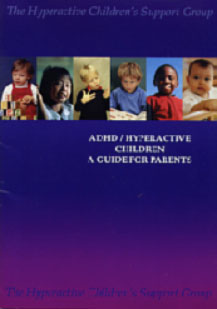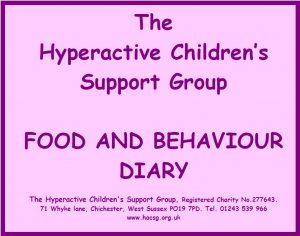
The Feingold Food Programme (or Feingold Diet) was researched and developed in the 1970s by Dr. Ben Feingold, an eminent allergy specialist in San Francisco, U.S.A. His research found that certain foods containing additives and salicylate caused or aggravated the symptoms of hyperactivity.
The HACSG believes that the Feingold Food Programme is the starting point for any parent seeking to find out if what their child eats or drinks is contributing to worrying behavioural problems. A diagnosis of hyperactivity / ADHD is not essential should a trial of the Feingold Food Programme be considered. While the programme may not necessarily provide the whole solution to the condition of ADHD or hyperactivity, it is certainly worth a fair trial.
We believe children should have good quality, nutritious fresh foods whenever possible. Processed and sugary products, however additive free should be avoided wherever possible.
As a result of the work of the HACSG over the past 35 years, many more foods, drinks and other products are now free from artificial colours, artificial flavours, preservatives and Monosodium Glutamate (MSG – E621).
Additives used in the UK are all identified by an ‘E’ number. Not all E numbers are a problem however and many are in fact naturally derived. However research carried out by the Government found that artificial colours do cause hyperactivity. It’s important to remember that other foods stuffs could be a problem too.
Symptoms that may be helped by the Feingold Food Programme
The following symptoms are not considered abnormal – many people exhibit some of them at times. A person who may be helped by the Feingold Programme displays more of them more frequently and to more of an extreme than the average person.
Marked hyperactivity
- Constant motion
- Running instead of walking
- Inability to sit still
- Inappropriate wiggling of legs / hands
Impulsive actions
- Disruptive behaviour / disturbs others
- Unresponsiveness to discipline
- Poor self-control
- Destructive: throws, breaks things
- Little or no recognition of danger to self
- Unpredictable behaviour
- Inappropriate noises
- Excessive and/or loud talking
- Interrupts often
- Abusive behaviour to people or pets
Compulsive actions
- Perseveration (repeating an activity)
- Touching things / people
- Aggression
- Workaholic habits
- Chewing on clothing, other objects
- Scratching, biting, picking at skin
Emotional concerns
- Low frustration tolerance
- Sensitive to touch, pain, sound, lights
- Depression
- Frequent crying
- Demands immediate attention
- Irritability
- Panics easily
- Nervousness
- Low self-esteem
- Mood swings
- Suicidal thoughts
Learning/Developmental
- Short attention span
- Impatience
- Distraction
- Failure to complete projects
- Inability to listen to whole story
- Inability to follow directions
Neuro-muscular involvement
- Accident prone
- Poor muscle coordination
- Poor eye-hand coordination
- Difficulty writing
- Dyslexia / reading problems
- Speech difficulties / delays
- Difficulty with playground activities, sports
- Eye-muscle disorder (nystagmus, strabismus)
- Tics
- Seizures
Cognitive & perceptual disturbances
- Auditory processing problems
- Visual processing problems
- Comprehension & short term memory difficulty
- Disturbed spatial orientation (up-down; left-right)
- Reasoning difficulty (math problems or word meaning)
Health / Physical Complaints
- Poor sleep habits
- Resists bedtime
- Can’t fall asleep
- Restless/erratic sleep
- Nightmares, bad dreams
Frequent physical complaints
- Ear infections
- Asthma
- Leg aches
- Bed wetting
- Stomach aches
- Constipation
- Day wetting
- Headaches
- Diarrhoea

Full details of the Feingold Food Programme are included in the HACSG publication ‘ADHD-Hyperactive Children – A Guide for Parents’.
The book includes everything from a list of additives (E numbers) to be avoided and ideas for meals, to a ‘foods allowed’ list and behaviour management ideas.
Available from Our Publications page.

 The HACSG Food & Behaviour Diary is now available online.
The HACSG Food & Behaviour Diary is now available online. 